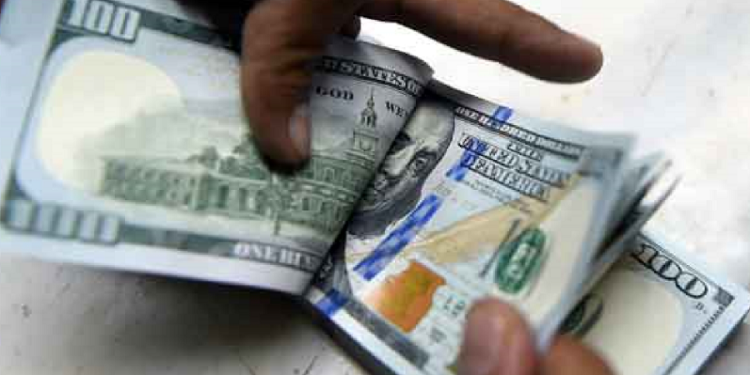Details of why CBN should adopt a flexible exchange rate have emerged.
NewsOnline reports that Dr Muda Yusuf, Chief Executive Officer, Centre for the Promotion of Private Enterprises (CPPE) has urged the CBN to adopt a flexible exchange rate regime.
This would imply that the Investors and Exporters (I&E) rate would be discontinued in favour of a market-determined exchange rate regime.
This was disclosed in a document sent to Niarametrics titled “THE CENTRE FOR THE PROMOTION OF PRIVATE ENTERPRISE (CPPE) 2022 FIRST QUARTER ECONOMIC REVIEW”.
Back story
- Recall that the CBN adopted the NAFEX rate as the benchmark rate on May 24, 2021. Rather than having multiple official rates (for example, the CBN rate of N379/$ vs. the IEFX rate of N410/$ at the time), the CBN simply decided to minimize the number of official rates.
- Arguably one benefit of this action was that it reduced the FX subsidy by at least 7.5% (N410/$ vs. $379/$). However, the IEFX rate of N416.5/$ is currently reflecting a N172 premium to the black market rate of N588/$.
- Hence, in February 2022, the CBN extended the Naira for Dollar scheme from the IMTOs to the IEFX window. Specifically, the CBN released instructions that outline that it will facilitate payment of N65 for every US dollar repatriated and sold at the Investors and Exporters Window.
- Thankfully, the CBN itself realizes this as acknowledged in its latest Communique thus these are temporary measures at best, whilst pending a turnaround in the underlying macroeconomic factors.
- Nonetheless, The CPPE has essentially asked the Nigerian Central bank to abandon its official rate and halt the interventions in the forex market.
What the CPPE is saying

According to Dr Muda Yusuf, the CBN’s current rigid attitude toward foreign exchange regulation is harming investors, causing distortions, and delaying the Nigerian economy’s recovery prospects; thus, a flexible exchange regime should be implemented to solve these bottlenecks.
Yusuf in his statement said, “The sharp and increasing currency depreciation in the parallel market remains a cause for concern. It is a trend that should not be allowed to continue and all necessary steps need to be taken [and urgently too] to stem the slide and volatility.
“We reiterate our proposition that we should adopt a flexible exchange rate policy regime. Let me clarify that this is not a call for currency devaluation.”
He further explained the fundamentals behind a flexible exchange rate regime, citing that a flexible exchange rate policy regime “is a pricing framework that reflects the demand and supply fundamentals. It is a model that is sustainable, predictable and transparent. It would reduce uncertainty and inspire the confidence of investors. It would minimize discretion and arbitrage in the foreign exchange allocation mechanism.”
He listed the benefits of a flexible exchange rate model which he says “enhances liquidity in the foreign exchange market; It reduces uncertainty in the foreign exchange market and therefore enhances the confidence of investors; It is more transparent as a mechanism for forex allocation; It eliminates discretion in the allocation of forex; It reduces opportunities for round-tripping and other sharp practices; It enhances the credibility of the foreign exchange market and the Reduction in the multiplicity of exchange rates.”
He stated that the adoption of a flexible exchange rate regime would improve liquidity in the forex market, reduce uncertainty and enhance investors’ confidence.
He urged the government to fix the structural problem in the economy to enhance the regional and global competitiveness of Nigeria’s products to boost exports and strengthen import substitution.














